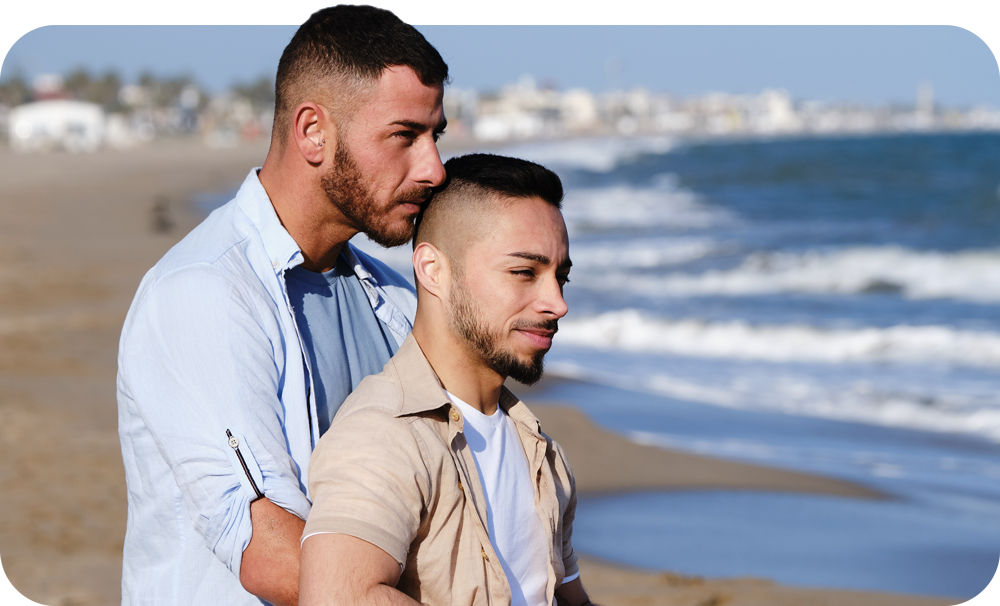LGBTQIA+ people and domestic abuse
Recognise the signs of an unhealthy relationship and what you can do to get help

You may be manipulated into believing that there is no help available to you because you are LGBTQIA+. You may also be told that abusive behaviours are ‘normal’ in your relationships or that you cannot experience domestic abuse.
About
Domestic abuse is not limited to heterosexual relationships and can affect individuals of all sexual orientations and genders. Research shows that LGBTQ people experience domestic abuse at equal or even higher rates compared to heterosexuals.
“Outing” or threatening to reveal someone’s sexual orientation or gender may be used as a tool of abuse in violent relationships. This may also be a barrier which reduces the likelihood of asking for help. Transgender people are also more likely to experience threats or intimidation and harassment.
Find out how we can help and how to get in touch.
Myths and misconceptions about domestic abuse
They do not hit me so it is not abuse
Find out more about the different types of abuse.
Only women experience domestic abuse
Galop support LGBT+ people who have experienced abuse and violence they provide support services and have an online community.
Alcohol and drugs make people more violent
Domestic abuse always involves physical or sexual violence
Other abusive behaviours include:
- Coercive control
- Psychological abuse
- Financial or economic control
- Emotional abuse
- Harassment
- Stalking
- Online or digital abuse
Short free online awareness courses are available to help you understand more about domestic abuse.
They can be a good parent even if they abuse me, it does not have to affect our children
An estimated 90% of children whose parents are in an abusive relationship witness the abuse. When a child witnesses domestic abuse it is child abuse.
Find out more about children and domestic abuse.
All couples argue – it’s not domestic abuse, it is just a normal relationship
Find out more about Recognising unhealthy relationships.
Domestic abuse only occurs in impoverished, inner-city areas
Domestic abuse is a rare occurrence
Domestic abuse is often a one-off incident
People experiencing abuse often provoke assaults and therefore “ask for it.”
Domestic abuse is a private matter that others should not get involved in.
If you or someone you know is experiencing domestic abuse phone 0800 69 49 999.
In an emergency you should always dial 999, if you are unable to speak because you are worried you will be overheard you can press 55 and the operator will know that you need assistance.
More information
Directory of additional support services
Somerset Domestic Abuse Service is Somerset’s main specialist service which provides support to men, women and children who are affected by domestic abuse.
Find local and national services that can provide you with extra help and support.
Contact us
Call us
8am to 8pm
7 days a week
0800 69 49 999
Emergencies
If you or someone you know is in immediate danger, please call the Police
